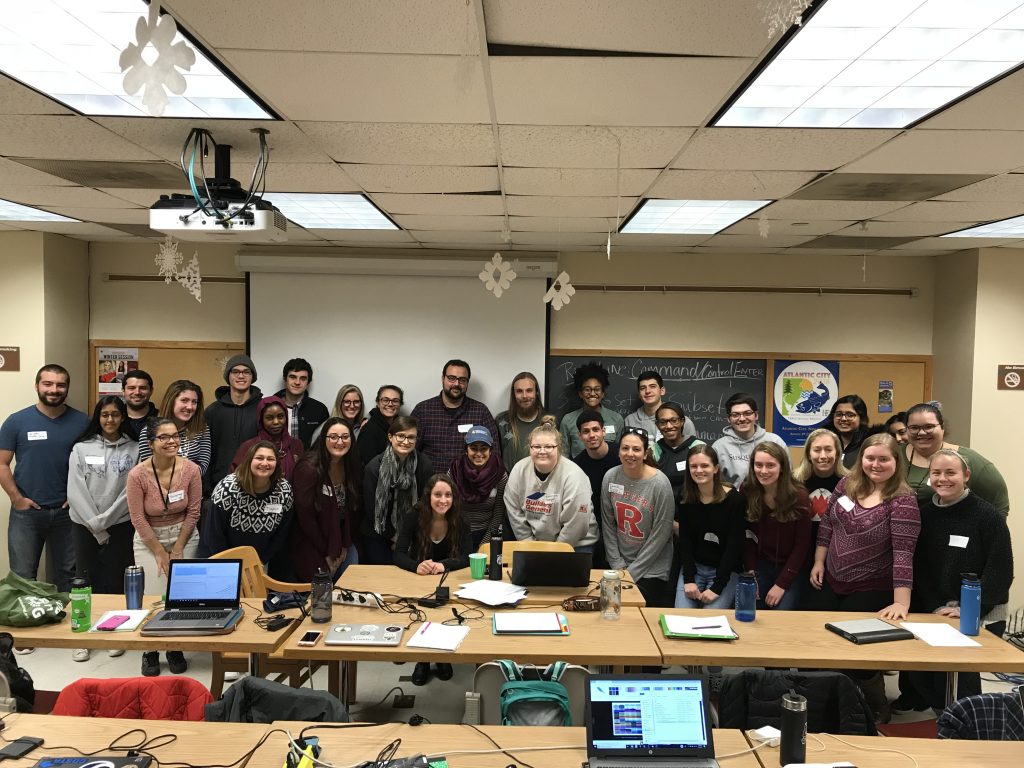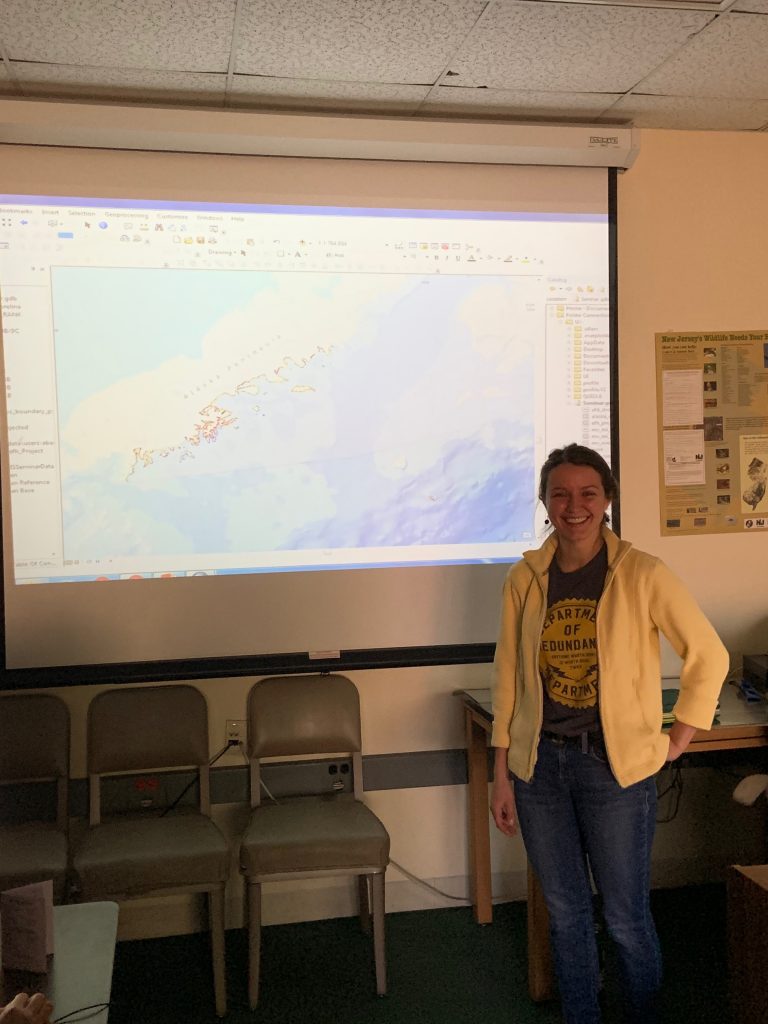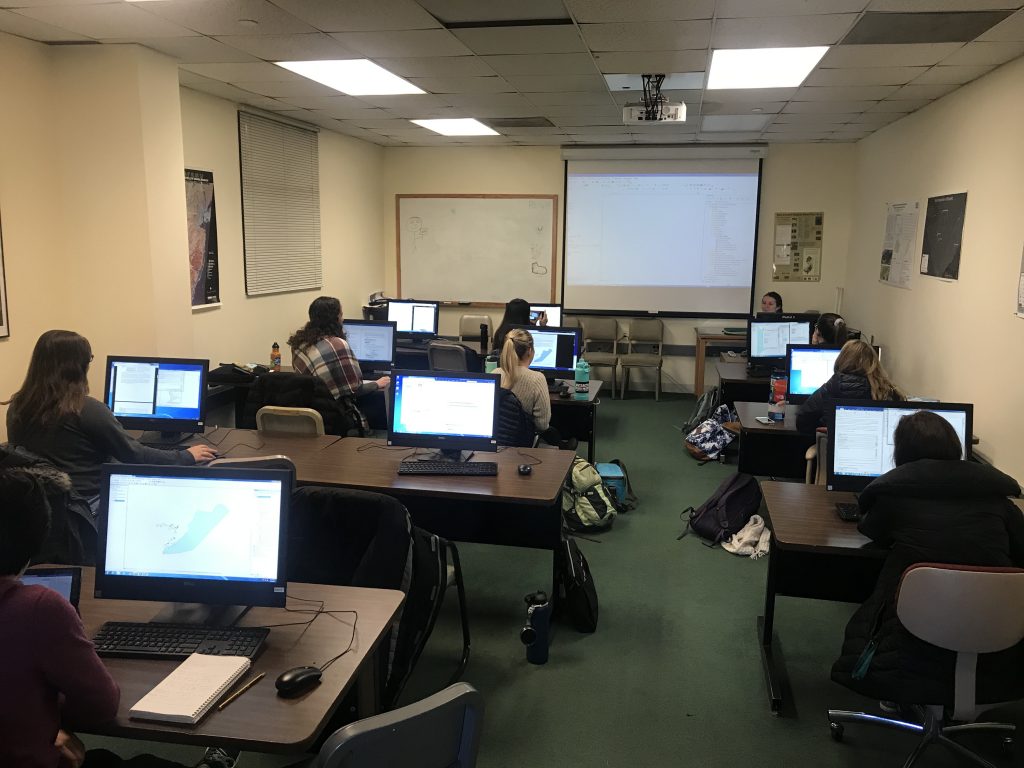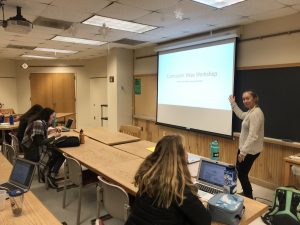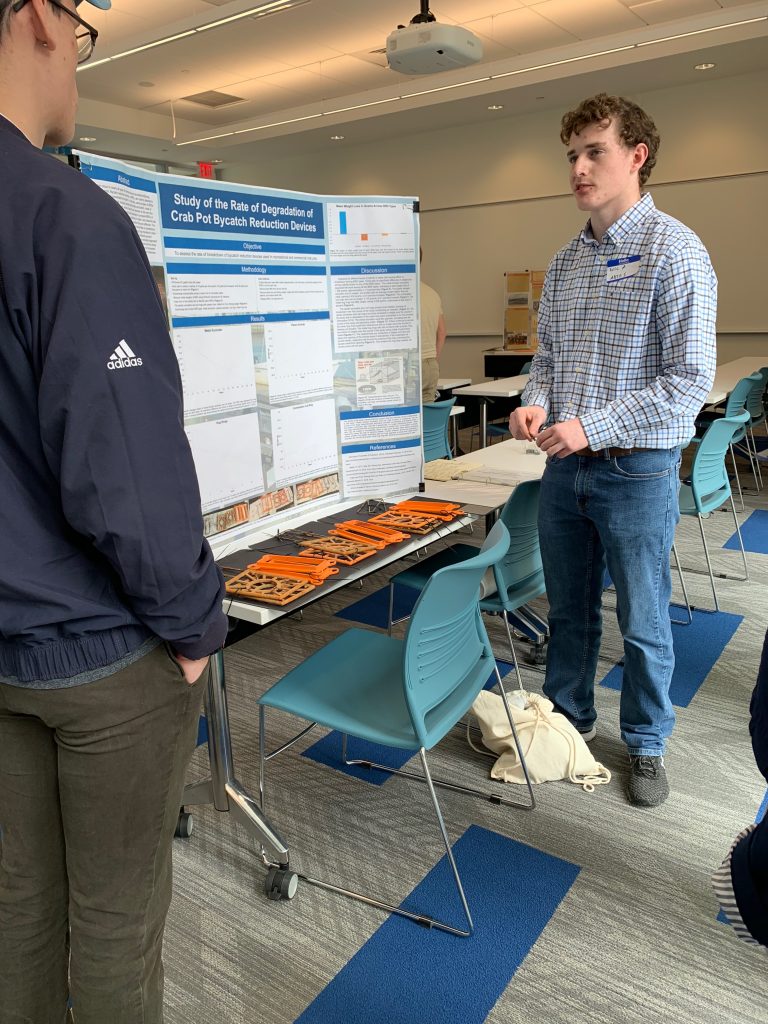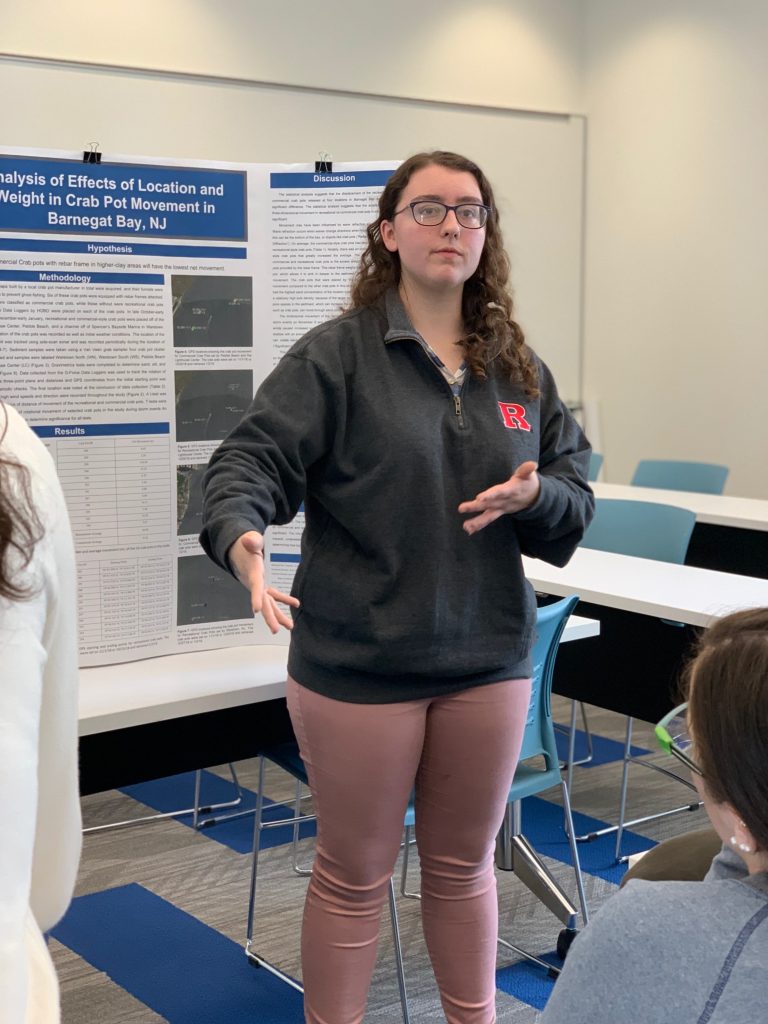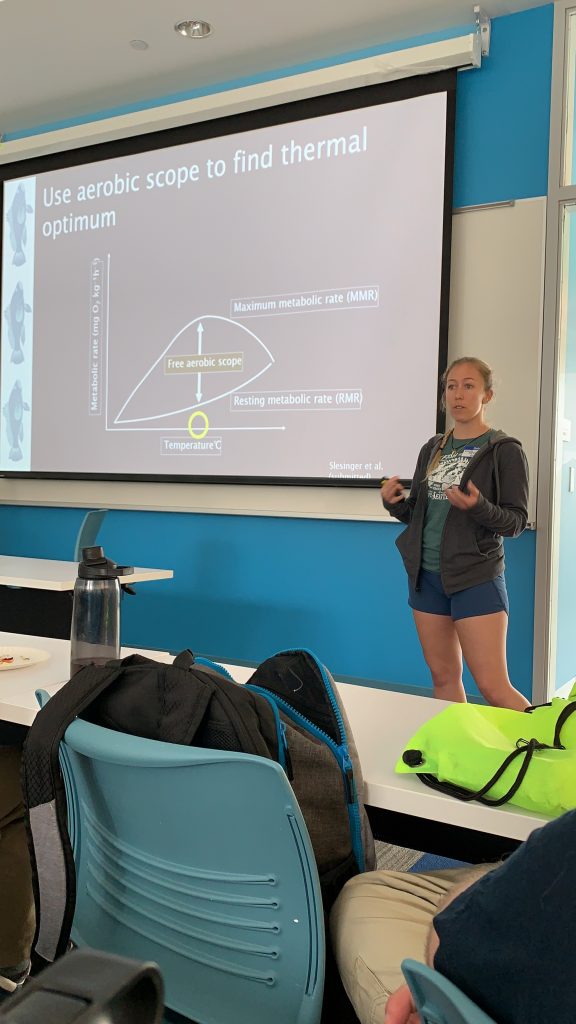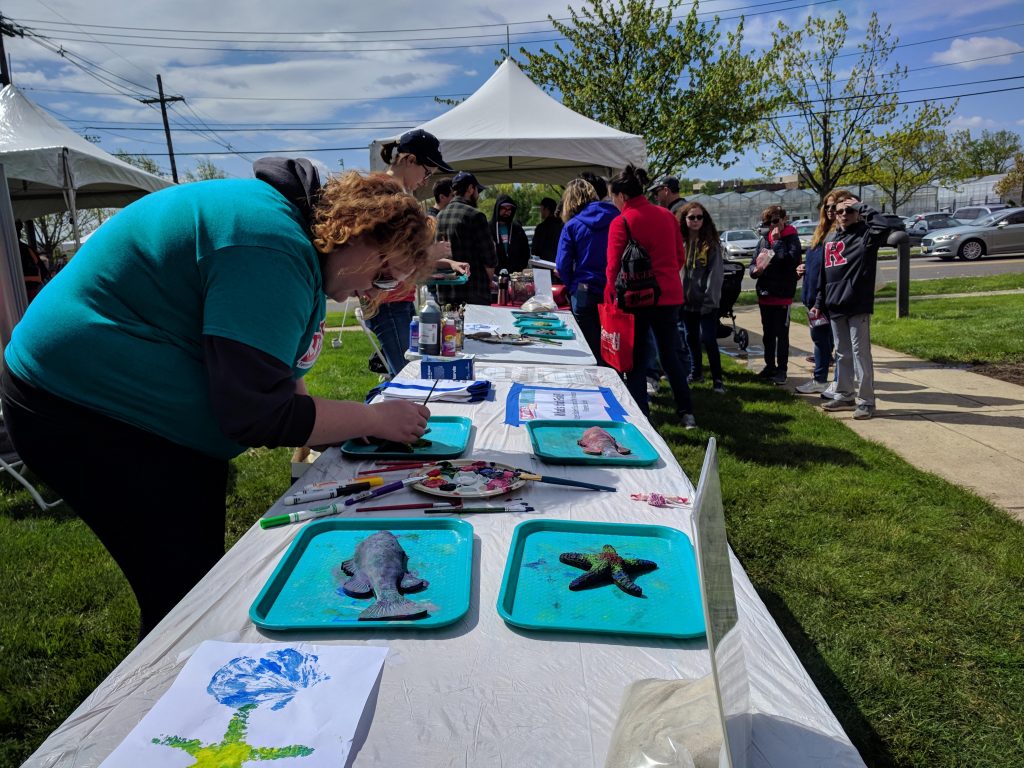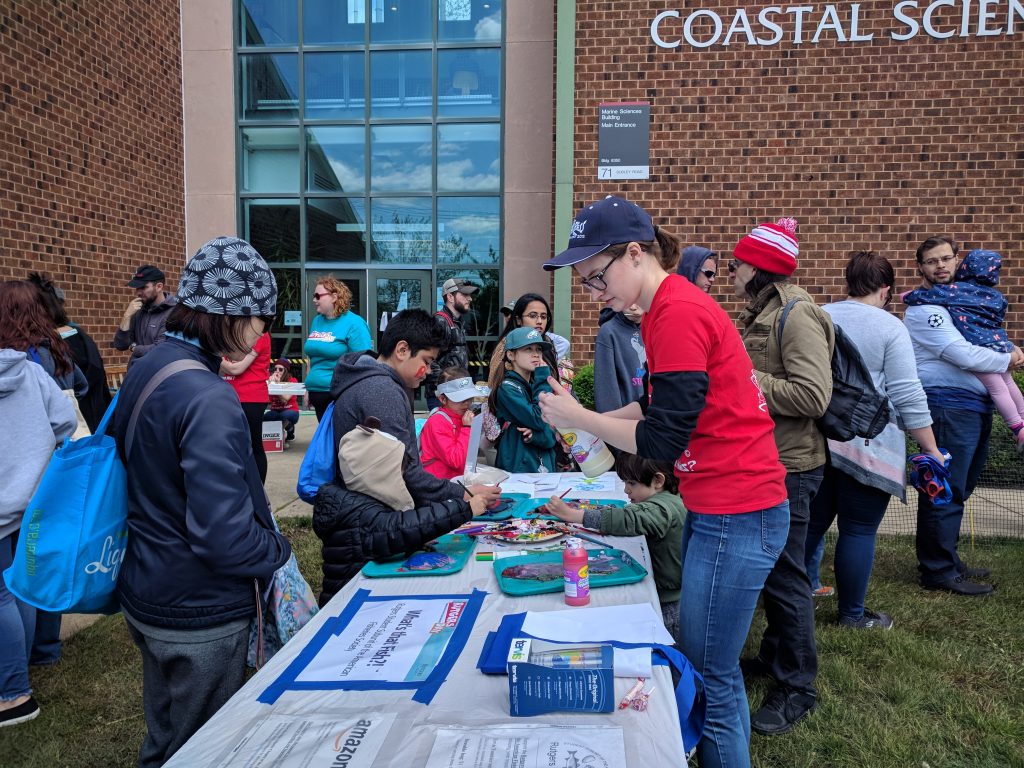Hosted by the Stockton University Student Subunit of The American Fisheries Society
On Sunday April 14, 2019 Stockton University’s Student Subunit of the American Fisheries Society held a Joint Meeting with fellow Mid Atlantic Chapter Subunits, Rutgers University and the Marine Academy of Technology and Environmental Sciences (MATES), which was held at the new Stockton University Atlantic City Campus. The meeting consisted of two keynote speakers: Jeff Brust, an administrator within Marine Fisheries of the NJDEP, Jeff conducted a presentation on A Day in the Life of a Marine Fisheries Administrator: A Look into the Development of Policy and Regulations. The second Keynote Speaker was Captain Jason Snellbaker who highlighted the importance of enforcement of enacted regulations by Marine Fisheries, which Jeff had gone into detail about, through examples of cases that he has encountered over his extensive career as a Conservation Officer within the Marine Enforcement Bureau. Following the keynote speakers time was allotted for a lunch break and networking across the industry professionals, graduate students, undergraduate students, and high school students in attendance. Once the networking session concluded students from each subunit had the opportunity to present their research to members in attendance. This was conducted in two separate sessions, the first consisting of posters in which attendees had the chance to freely roam to hear about each project and ask questions, and the second consisting of powerpoint presentations developed by each student presenter. The poster session consisted of four posters from MATES Students: Teresa Brostow, MATES ’19, “Analysis of Effects of Location and Weight in Crab Pot Movement in Barnegat Bay, NJ” (Study focusing on the movement of commercial versus recreational crab pots); Makenzie Fries, MATES ’21, “The Effect Various Bycatch Reduction Device Shapes have on Malaclemys terrapin and Callinectes sapidus” (focusing on the shape of BIRDs in crab pots and how they affect catch and bycatch); Steven Holmberg, MATES ’20, “The Effectiveness of Bycatch Reduction Devices (BRDs) on Reducing Bycatch Without Reducing Crab Pot Efficiency” (compared three BRD types and measured catch per unit effort); and Eric McGivney, MATES ’20, “Study of the Rate of Degradation of Crab Pot Bycatch Reduction Devices” (looked at the degradation of crab pot escape panel features).
Powerpoint presentations were conducted by Penny Demetriades, MATES ’19, “A Comparative Analysis of the Prevalence of Pleurogonius malaclemys Parasitic Infection of Ilyanassa obsoleta in Barnegat Bay, New Jersey” (Study of a parasitic Trematode prevalent on mud snails along the east coast of the U.S.) as well as Emily Slesinger, Rutgers, “Black sea bass physiology in the context of seasonal variability and long-term climate change” and Nicole Deck, Rutgers, ”Caribbean Stony Coral Disease Prevalence”.
To wrap up the day we completed a tour of the Stockton Atlantic City Campus to showcase the amazing amenities the new campus has to offer. Overall the meeting was seen as a great success. Students were very engaged and had great opportunities to expand upon their AFS experience. Continued collaboration and communication across subunits was developed and cultivated within this meeting and we were very thankful for all that attended as well as all that presented.
